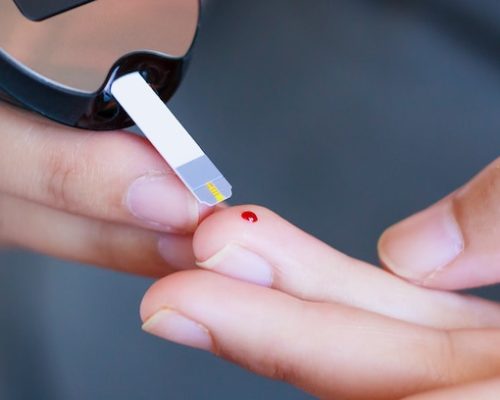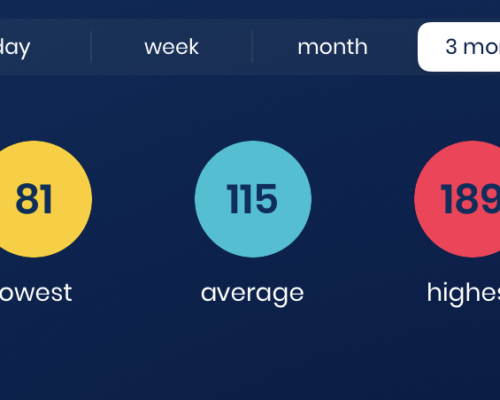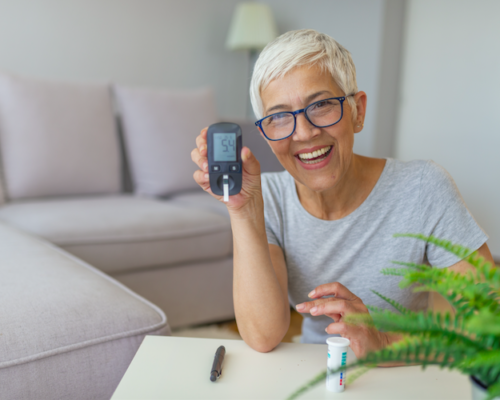To those of us with diabetes, going in for an A1c test at the clinic often feels like the dreaded surprise of receiving a year-end school report card. We are nervous to see a number that is higher than we hoped for, and then need to deal with the guilt that comes with a high number.
Our response is often to look at the average of glucose results from our meter and estimate our A1c from any number of translation tables available online. But we often find that our blood glucose average does not accurately predict our true A1c, which can be an ugly surprise. Why?
Let’s look first at what an A1c test is measuring. A1c is a lab test that is measuring the amount of glucose that has attached to the hemoglobin– part of your red blood cells. Since the red blood cells in your blood live about 3 months, your A1c result is actually the average glucose you have had in your bloodstream for the last 3 months.
So why aren’t your average blood glucose meter results the same as the A1c average?
The primary reason is that we don’t usually test our blood sugar often enough at all times throughout our day to accurately reflect the true average of glucose.
Let’s look at an example. If your glucose fluctuates up and down as you eat, your true average of that glucose wave maybe 180 mg/dl as shown in the diagram. If you tend to check your blood glucose with a BGM prior to eating, your results are mostly going to occur when your actual glucose is low. You are missing the peaks of your glucose, so the average BGM result is going to be lower than your actual A1c.
To get a good average of your glucose from your BGM results, you need to test equally before and after meals and exercise. The Pops Rebel system and Mina will provide you a calculated A1c from your glucose measurements, but ONLY if you have a distribution of results, and enough results, to get an accurate projection of A1c.
Other biological factors can also throw off comparing A1c to your BGM average. Each of us is different with different red blood cell longevities and differences in how quickly glucose attaches to those cells.
Don’t be surprised at your next A1c test. Try testing your glucose with your meter often and throughout your normal routine and see how close you can get your A1c and BGM average.









